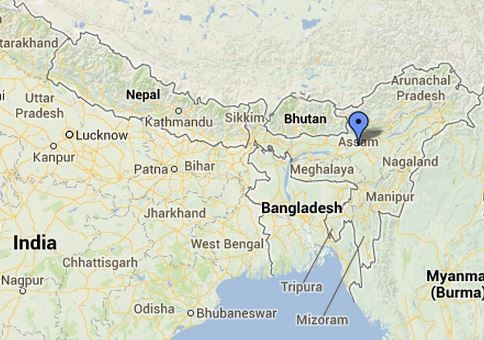India: Mob Sacrifices Man in Witch-Hunt and Dances around Buried Body Chanting Religious Hymns

An Indian believed to be possessed by evil spirits was assaulted and beaten to death by a mob, in the country's eastern state of Assam. The victim, identified as 80-year-old Jawaharlal Mura, was then reportedly buried near a temple. The mob then consumed alcohol and danced to and chanted religious hymns, to appease the local goddess.
The incident took place in a village inhabited by a local tribal population. The village is in the southern part of the state, in the Cachar district. And reports suggest nearly 2,000 people may have witnessed the crime, which occurred on Thursday.
Daily News and Analysis (DNA) claims the entire incident may have been started by a man, Sukumar Mura, from the same village. He claimed to have had a dream on Wednesday night that the victim was possessed and that spelt danger to the other villagers.
The news spread fast and soon a mob of people reached the victim's house. The villagers, most whom are illiterate and hold superstitious beliefs, dragged him out. They tied him to a tree, bathed him, smeared vermillion on his forehead and performed sacrificial rituals before beating him to death.
"We saw in our dreams that Mura was a witch and we killed him in accordance with the desires of Goddess Kali," a villager later told police.
"The manner in which Jawaharlal was killed and the behaviour of the locals is yet to be ascertained. We have arrested 11 persons including three women," Cachar superintendent of police Diganta Bora told DNA, adding the case was of witch-hunting and involved the whole village.
"A police team had gone to the village on Thursday night but it couldn't retrieve the body as the situation there was very tense. The body was retrieved this (Friday) morning but not before the policemen lathi-charged (used sticks to disperse the crowd)," Bora added.
Witch-hunting is a common social malaise in Assam but the government has yet to formulate stringent laws to fight the crime. More than 100 people have been killed in Assam between 2001 and 2011, as a result of such practices.
© Copyright IBTimes 2025. All rights reserved.



















